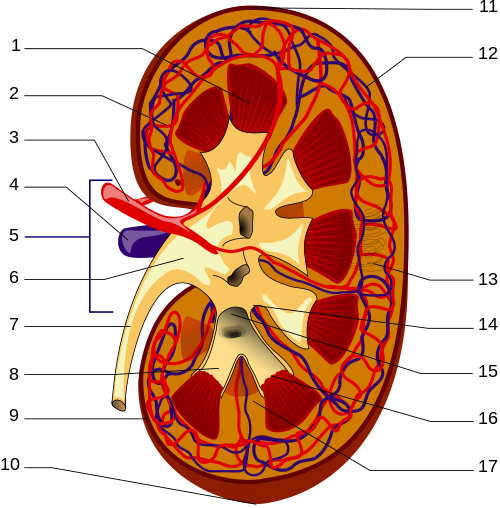
Photo from academic.microsoft.com
Uremic encephalopathy encompasses a wide range of central nervous system abnormalities associated with poor kidney function occurring with either progressive chronic kidney disease (CKD) or acute kidney injury (AKI). The… Click to show full abstract
Uremic encephalopathy encompasses a wide range of central nervous system abnormalities associated with poor kidney function occurring with either progressive chronic kidney disease (CKD) or acute kidney injury (AKI). The syndrome is likely caused by retention of uremic solutes, alterations in hormonal metabolism, changes in electrolyte and acid-base homeostasis as well as changes in vascular reactivity, blood-brain barrier transport and inflammation. There are no defining clinical, laboratory or imaging findings and the diagnosis is often made retrospectively when symptoms improve after dialysis or transplant. The diagnosis is also made difficult due to the many confounding and overlapping conditions seen in patients with CKD and AKI. Thus, institution of kidney replacement therapy should be considered as a trial to improve symptoms in the right clinical context. Neurological symptoms that do not improve after improvement in clearance should prompt a search for other explanations. Further knowledge linking possible uremic retention solutes with neurological symptoms is needed to better understand this syndrome as well as to develop more tailored treatments that aim to improve cognitive function.
Journal Title: Kidney international
Year Published: 2021
Link to full text (if available)
Share on Social Media: Sign Up to like & get
recommendations!